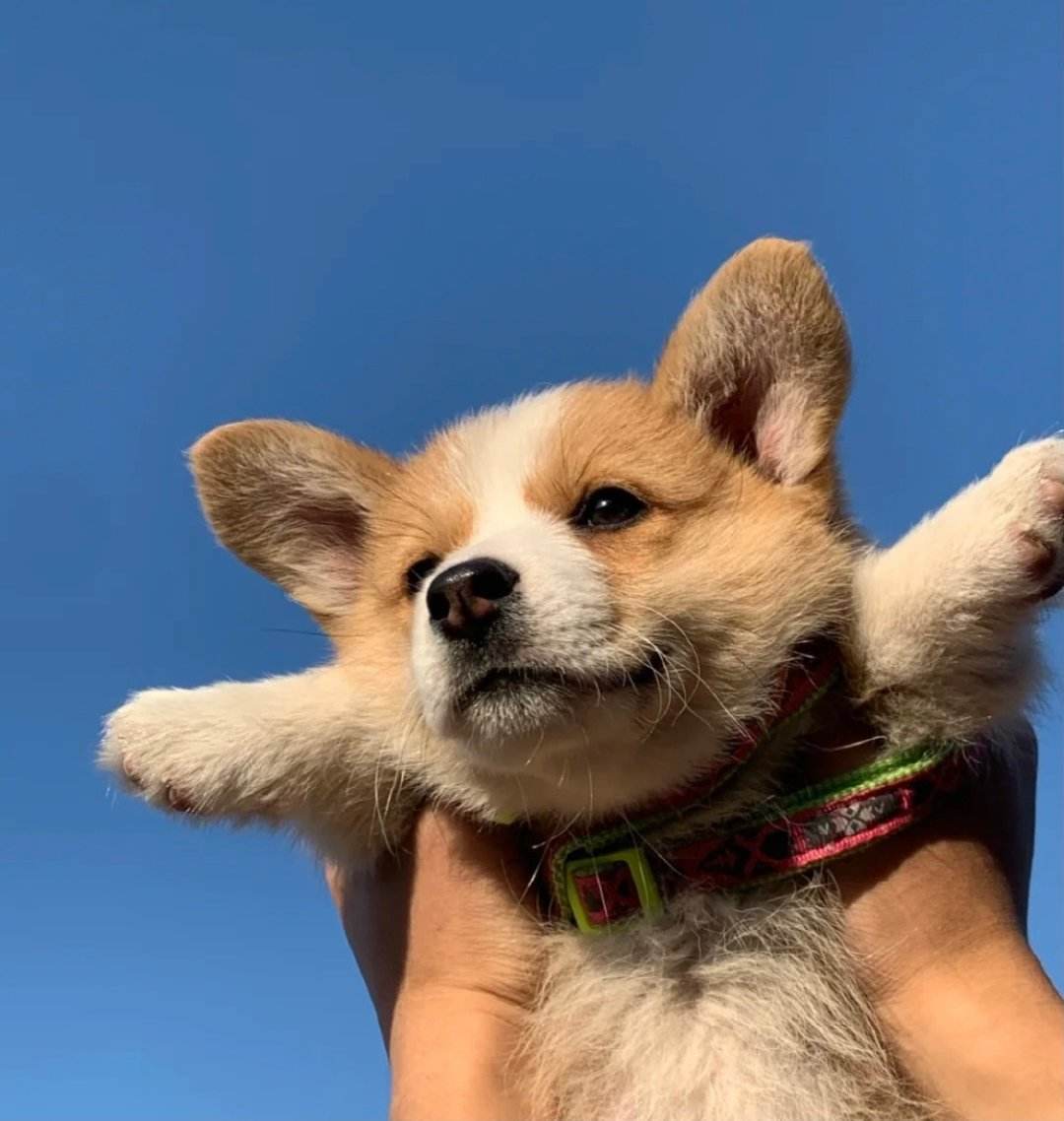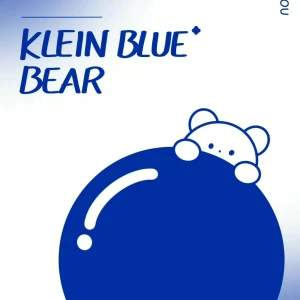 肖振
肖振 -
是的,"some fishermen"是三单形式。"fishermen"是复数形式的名词,而"some"是表示数量的限定词,用来修饰名词。在英语中,复数名词在句子中作主语时,通常使用第三人称单数的动词形式。因此,"some fishermen"作为复数名词的主语,需要使用第三人称单数形式的动词,例如"some fishermen go fishing"(一些渔民去钓鱼)。
 苏萦
苏萦 -
"some fishermen"可以理解为“一些渔民”的意思,此处并不是“三单”。在英文语法中,“some”常常被用来表示数量不确定的人或物。例如,“some people”表示“一些人”,“some books”表示“一些书”。而“三单”的说法主要针对英语中的第三人称单数形式的动词,如“he goes”(他去),“she speaks”(她说话)。因此,“some fishermen”并不是指“三单”,而是一个包含数量不确定的渔民的表达。
 陶小凡
陶小凡 -
some fishermen意为一些渔民渔夫,并且fishermen是复数,不是单三。
 水元素sl
水元素sl -
不是,"some fishermen" 是复数形式。在英语中,如果一个名词前有 "some" 修饰,通常表示复数意义。例如,"some cats" 意思是 "一些猫咪",而不是 "某个猫咪"。因此,“some fishermen” 表示“一些渔民”,而不是“某个渔民”。
 小白
小白 -
不是三单,fisherman是fisherman的复数
 ardim
ardim -
不是三单
是第三人称复数
There are some fishmen over there.
那边有几个渔民。
 大鱼炖火锅
大鱼炖火锅 -
不是三单
是第三人称复数
There are some fishermen in the boat.
 豆豆staR
豆豆staR -
不是,这是个负数,翻译过来是一些鱼
fisherman的复数形式
fishermen。意思是n.渔夫,渔民。例句:Arriving at the dating party , another fisherman is wearing the same shirt .到达相亲地场后,他发现另一位渔民也穿着一模一样的衬衫。 相关例句 Here , a fisherman dangles a line through a hole in the ice . 这里,一个渔民在冰面上把鱼线摇摇晃晃的伸进洞里。 A fisherman drags nets of oysters from the turbid river water on a breathless summer day . 一个渔民在喘不过气来的夏天从浑浊的河水里拖上了几网牡蛎。 The 31-year-old fisherman has just sold his catch and the deck is drying in the sun . 这位31岁的渔民刚刚卖完自己捕捞的海鲜,甲板在阳光下晒着。 With great difficulty, the fisherman manoeuvred his small craft close to the reef 渔夫费了很大的劲才把他的小船划到暗礁旁。 Spyros Latsis started his career as a humble fisherman in the Aegean 斯皮罗斯·拉齐斯的第一份职业是爱琴海上一名地位卑贱的渔夫。 They were rescued by a fisherman . 他们被一个渔民救出。2023-06-18 13:42:241
fisherman的复数形式是什么?
fishermen,希望帮到你2023-06-18 13:42:343
he is a fisherman改为复数句
he is a fisherman复数句为these are fishermen2023-06-18 13:42:442
fisherman是不是名词
是的 渔夫渔民的意思望采纳 谢谢2023-06-18 13:43:252
fisherman怎么读
fisherman 英[u02c8fiu0283u0259u02ccmu0259n] 美[u02c8fu026au0283u0259mu0259n] n.渔夫,渔民 名词复数:fishermen [例句]They were rescued by a fisherman. 他们被一个渔民救出.2023-06-18 13:43:311
fishermen和fishmen区别是什么
后面那个不存在2023-06-18 13:43:404
fisherman是什么意思
fisherman[英][u02c8fu026au0283u0259mu0259n][美][u02c8fu026au0283u0259rmu0259n]n.渔夫,渔民; 复数:fishermen例句:1.My father was a fisherman. 我父亲是个渔夫.2023-06-18 13:44:021
渔民的复数
答案:fishermen"s. 根据提示汉语结合语境推测句意是"请记得告诉我所有渔民的名字.",提示词"渔民"是fisherman,且根据前面的all the 判断用复数形式fishmen,再根据后面有名词names判断用名词所有格形式,不以s结尾的复数名词的所有格是在后面直接加"‘s",所以答案是:fishermen"s2023-06-18 13:44:081
three types of fisherman中的fishermanw为什么不加s
第一: fisherman 的复数是fishermen ,不是加s第二 of fisherman 当形容词使用,of 后面接单数名词2023-06-18 13:44:241
英语:一、写出下面名词的复数形式,不可数名词用/ 表示
一、写出下面名词的复数形式,不可数名词用/表示1.family___families____2.radio__radios__3.drink___/____4.paint__paints_____5.tomato_tomatoes______6.butterfly__butterflies____7.lorry__lorries_____8.city__cities_____9.child__children_____10.photo__photos_____11.glue___/____12.pork__porks_____13.crayon____crayons___14.vegetable_vegetables______15.woman___women____16.adult__adults_____17.fisherman__fishermen_____18.leaf__leaves_____2023-06-18 13:44:531
Please()(give)these()(fisherman)some water。
Please (give)these( fishermen)some water。2023-06-18 13:45:003
three types of fisherman中的fisherman为什么不加s
楼主 如果是要变为复数也不是加s而是把man变为men 而这里是指三种类型的大一学生 单指学生 仅仅是单指学生这个名词 所以不需要变为复数2023-06-18 13:45:082
fishermen的单数是什么
fishermen-------------fisherman凡是men的单数都变为man就行了2023-06-18 13:45:202
fishers 和fishermen的区别
fishers 和fishermen的区别fishers 单词词义:n.渔船;渔夫( fisher的名词复数 );食鱼动物;捞取者;肺鱼( lungfish的名词复数 )fishermen 单词词义:n.渔夫,钓鱼者,渔船2023-06-18 13:45:301
有关职业的英语单词
factoryworker,工人postman,邮递员busingssman,商人policeofficer,警察fisherman,渔民pilot,飞行员coach,教练reporter,记者secretary,秘书taxidriver,出租车司机cleaner,清洁工writer,作者singer,歌手dangcer,舞蹈老师footballplayer,足球教练detective,侦探firefighter,消防员journalist,新闻记者painter,画家lawyer,律师barber,理发师dantist,牙医nurse,护士accoantant,会计cashier,出纳员salesman,销售员assistant,助理artist,艺术家给赞(≧▽≦)/的是帅哥美女哦!2023-06-18 13:47:1212
初中英语重点语法总结梳理
英语语法对于初中生学习英语来说是非常重要的,下面整理了初中英语重点语法总结,供大家学习与参考,希望对大家有所帮助。 一般过去时与现在完成时的转换 在现在完成时中,延续性动词能与表示一段时间的状语连用,瞬间动词却不能。但是,可用别的表达方式:①瞬间动词用于“一段时间+ago”的一般过去时的句型中;②瞬间动词可改成与之相对应的延续性动词及短语,与一段时间连用;③瞬间动词用于“It is +一段时间+ since+一般过去时”的句型中,表示“自从……以来有……时间”的意思,主句一般用it is来代替It has been;④瞬间动词用于“Some time has passed since+一般过去时”的句型中。请看: A. He joined the League two years ago. B. He has been in the League for two years. C. It is two years since he joined the League. D. Two years has passed since he joined the League. 名词的不规则变化 (1)改元音字母,构成复数。如:man-men,woman-women,foot-feet,fisherman-fishermen,tooth-teeth,mouse-mice(例外:German-Germans,walkman-walkmans,human-humans)。 (2)单复数形式一样。如:sheep-sheep,Chinese-Chinese,Japanese-Japanese,deer-deer,fish-fish。 (3)词尾变化。如:child-children。 (4)只有复数形式,无单数形式的名词。如;clothes,trousers,glasses,shoes。 (5)以man和woman构成的复合名词变复数时,要采用双复数形式。如:man tourist-men tourists,woman teacher-women teachers。 名词所有格 1、表示有生命的名词所有格 (1)单数名词加"s,如:Peter"sbag。 (2)词尾有s或es的复数名词加“"”,如:theteachers"office。 (3)不以s或es结尾的复数名词后仍加“"s”,如:Children"sDay。 (4)表示时间、距离,如:today"snewspaper,twohours"walk。 2、表示无生命的名词所有格,用of+名词所有格,如:thefrontgateoftheCityHall,amapofChina。 3、表示有生命的名词所有格,也可用of+名词所有格,如:afriendofmine,abookofjane"s,afriendofMary"ssister"s。 【注意】PeterandMary"sdesk表示“彼得和玛丽合用的桌子” Peter"sandMary"sdesks表示“彼得和玛丽各自的桌子” 介词的用法知识点 1、具体时间前介词用at。 He gets up at half past seven every day.他每天七点半起床。 She goes to bed at eleveno"clock.她十一点睡觉。 2、表示“在早上,在下午,在晚上”的短语中用介词in,且定冠词the不能省略;表示“在中午,在夜里”的短语中介词用at,不加冠词。 in the morning在早上,in the afternoon在下午,in the evening在晚上,at noon在中午,atnight在夜里。 3、表示“在某天”、“在某天的上午、下午等”的短语用介词on。 What do you usually do on Monday morning?星期一上午你通常做什么? Do you sometimes go out to ea ton Friday evening?有时你星期五晚上出去吃饭吗? He watches DVDs on Saturday night.星期六晚上他看DVD。 Parents take children to parks on June 1.六月一日,家长们带着孩子去公园。 4、在this,last,next,every等词前面既不加介词,也不用冠词。 What are you doing this afternoon?今天下午你做什么? He visits his grandma every Friday.他每个星期五都去看望祖母。 She is going to Shanghai next Monday.她下个星期一去上海。 状语从句知识点 状语从句就是由一个句子在复合句中充当状语。所以状语从句又可以分为时间状语从句、地点状语从句、原因状语从句、目的状语从句、结果状语从句等等。每种状语从句都有特定的引导词: 地点状语从句:where,wherever。 时间状语从句:when, while, as, before, until, till, since。 原因状语从句:because, since,as, now that, not that…, but that…, seeing that,considering that, in that。 目的状语从句:so, so that, in order that, that, to the end that, in case,for fear that,lest。 结果状语从句:so…that, such that, so that, with the result that。 条件状语从句:if,unless,if only,only if,in。 case,suppose/supposing(that),provided/providing(that),on condition that,so/as long as。 方式状语从句:as, as if, as though。 让步状语从句:though, although, as, even if, even though, whether, no matter whether…or, no matter with。2023-06-18 13:48:191
职业的英语单词有哪些
Cook,Doctor2023-06-18 13:48:289
英文说工作种类20个
关于职业的英语单词有很多,比如scientist 科学家 、detective侦探 、fisherman 渔夫 、fire fighter 消防员 、journalist 新闻记者 、lawyer 律师 、barber 理发师、singer歌手 、engineer 工程师 、hunter猎人 、worker工人 、painter画家 、writer/author 作家 、businessman 商人、pilot 飞行员、dentist牙医、nurse护士 、accountant 会计等。2023-06-18 13:49:182
英语下t h e的用法,用在哪些地方?
The的用法归纳 1 表示特指的人或物 例:Please hand me the key on the desk. 请把桌上的钥匙递给我. The girl in red is his sister. 穿红色衣服的女孩是他妹妹. The building over there is the tallest in the town. 那边那幢大楼是这个城里最高的. I like the music of the film. 我喜欢这部电影的音乐. 2 表示双方都知道的或心中明白的人或物 例:Shut the door, please. 请关门. Has he returned the book? 那本书他还了吗? Take the blue one, it is cheaper. 拿那个蓝的,它便宜些. 3 第二次提到某人或某物第一次提到时用不定冠词,第二次提到时要用定冠词. 例:He saw a house in the distance. Jim"s parents lived in the house. 他看见远处有一所房子,吉姆的父母就住在那所房子里. There was once an old fisherman. The old fisherman had a cat. The cat was white. 从前有一个老渔夫.这个老渔夫有一只猫.这只猫是只白猫. 4 用在世界上独一无二的名词前 这类词有: the sun太阳, the earth地球, the moon月亮, the sky天空, the world 世界 例:The moon goes round the earth. 月亮绕着地球转. There is not any cloud in the sky. 天空中没有一丝云彩. It was a fine day in spring. The sun shone brightly. 这是一个晴朗的春日,阳光灿烂. He is the richest man in the world. 他是世界上最富的人. 5 用在表示方向、方位的名词前 这类词有: the east东方,the west西方,the south南方,the north北方,the right右边,the left左边 例:The birds are flying to the north. 这些鸟向北方飞去. The moon rises in the east and sets in the west. 月亮从东方升起,在西方落下. The wind was blowing from the south. 风从南方吹来. She lived to the west of the Summer Palace. 她住在颐和园的西边. Walk along the road and take the first turning on the right. 沿着这条路往前走,在第一个路口往右拐. He stood at the back of the door. 他站在门背后. 提示 方位词成对使用构成平行结构时,不用定冠词. 例:The river is two thousand kilometers long from west to east. 这条河自西向2000公里长. They traveled through the country from south to north. 他们自南向北在这个国家旅行. 6 用在形容词最高级前 例:Summer is the hottest season of the year. 夏天是一年中最炎热的季节. She is the best person for the job. 她是最适合这个工作的人. Hangzhou is one of the most beautiful cities in the world. 杭州是世界上最美的城市之一. The car is the most expensive of the four. 这部车是四部车中最贵的. 7 用在序数词等前 定冠词用在序数词前,也用在表示序列的next, last等前,还有在表示“同一”或“唯一”等的词前. 例:The first man to land on the moon is an American. 第一个登上月球的人是美国人. She was the fifth to climb to the top of the mountain. 她是第五个到达山顶的人. This may be the last chance. 这可能是最后一次机会. If I miss this train I"ll catch the next one. 如果赶不上这趟火车,我就赶下一趟. He is the only person who knows the secret. 他是唯一一个知道这个秘密的人. The two coats are of the same colour. 这两件外衣颜色相同. This is the very book I want. 这正是我要的书.(用very表示强调) 提示 a 序数词表示“又一”时,前面用不定冠词a(an) 例:He bought a second pair of shoes. 他又买了一双鞋. He asked a question, then a second, then a third…他问了一个问题,又问了第二个,第三个…… b 序数词用作状语或表语时,前面不加定冠词. 例:George arrived first. 乔治第一个到. =George was the first person to arrive. Jim and Jack are both second in the match. 汤姆和杰克在比赛中并列第二. 8 用在单数名词前表示一类人或物,强调整个类别 例:The orange is a kind of fruit. 橘子是一种水果. The horse is a useful animal. 马是一种有用的动物. The computer is important to us. 电脑对我们来说是重要的. 提示 不定冠词+单数名词,不带冠词的复数名词也可表示一类人或物. 例:A car runs faster than a bus. 小汽车比公交车跑得快. Cars run faster than buses. A dog is a faithful animal. 狗是忠实的动物. Dogs are faithful animals. 9 用在乐器名词前,表示演奏 例:She can play the piano. 她会弹钢琴. He plays the violin very well. 他小提琴拉得很好. He played the guitar for the children. 他给孩子们弹了吉他. 提示 但乐器名词表示具体的器物,或表示课程时,不加the. 例:He bought a piano last month. 他上个月买了一架钢琴. She taught piano in the school. 她在学校里教钢琴. 10 用在江河、海洋、湖泊、群岛、山脉的名称前例: the Yangtze River 长江 the Red Sea 红海 the West Lake 西湖 the Pacific 太平洋the Himalayas 喜马拉雅山 the Nile 尼罗河 the Rocky Mountains 落基山脉 the South China Sea 南中国海 提示 例外的情况: Mount Tai泰山 China Daily《中国日报》 11 用在由普通名词和另外一些词构成的国家名称、机关团体、阶级、等专有名词前 例:the Great Wall 长城 the United Nations 联合国 the New York Times 《纽约时报》 the United States of America 美国 the Red Cross Hospital 红十字医院the Olympic Games 奥林匹克运动会 the Shanghai Railway Station 上海火车站 the People"s Republic of China 中华人民共和国 the North Pole 北极 the People"s Daily 《人民日报》 12 用在某些形容词前,表示一类人或物或某种抽象概念 例:the old 老年人 the happy 幸福的人 the poor 穷人 the aged 老人 the sick 病人 the impossible 不可能的事the young 年轻人 the rich 富人 the blind 盲人 the wounded 伤员 the smooth 顺事 the beautiful 美,美的东西 例:The rich should help the poor. 富人应该帮助穷人. The good is what people like. 人们总是喜欢美好的东西. The wounded have been sent to the hospital. 伤员已经被送到医院去了. 13 用在姓氏的复数形式前,表示全家人或这一姓的夫妇二人 例:The Greens will more to the country. 格林一家要搬到乡下去. The Wangs came to see us yesterday. 王家一家人昨天来看我们. The Browns are very friendly. 布朗夫妇都很友好. 14 用在表示计算单位的名词前,含有“每,每一”的意思 例:Jim is paid by the hour. 吉姆的工资按小时付. Eggs are sold by the kilogram. 鸡蛋按千克出售. This cloth is sold by the yard. 这种布按码出售. It sells at three dollars the pound. 它以每磅三美元出售. They sell sugar by the pound. 他们按磅卖糖. 15 用在前面已提到过的人的身体部位或衣着的名词前 这种用法是先把整个对象说出来,然后再说到那个对象的身体的局部或衣着. 结构:动词(hit, pull, pat, strike, catch, hold, take)+sb.+介词(in, on, by, across)+身体部位或衣着 例:She touched him on the shoulder. 她碰了碰他的肩. He took the girl by the hand. 他拉着小女孩的手. He hit her on the nose. 他打了她的鼻子. The stone struck the man in the eye. 石头击中了那人的眼睛. I caught her by the right hand. 我抓住她的右手. 比较:她拍了拍那男孩的头. She patted the boy on his head. (误,本结构中身体部位或衣着前不用one"s) She patted the boy on the head. (正) 16 用在逢十的复数数词前,表示年代,也指人的大约岁数 例:The war broke out in the forties. 那场战争发生在40年代. He went abroad in the 1980s. 他在20世纪80年代出国的. The old man is in the seventies. 老人大约七十几岁. 17 用在表示自然现象的名词前 这类名词有: the rain 雨,the wind风, the fog雾,the snow雪, the air空气, the storm风暴,the snowstorm 暴风雪 例:Don"t stand in the rain. 不要站在雨中. The wind blew down the trees. 风把树刮倒了. The ship sank in the storm. 船在风暴中沉没了. The rain has cleaned the air. 下雨净洁了空气. The fog was so thick that we couldn"t see the top of the hill. 雾很大,我们看不见山顶. 提示 a 这类名词前有形容词修饰时,可用不定冠词,表示“一场,一阵,一种” 例:A cold wind is blowing from the north. 冷风从北方吹来. There was a heavy rain last night. 昨晚下了一场大雨. A heavy snow is falling outside. 外面正下着大雪. b 这类名词表示一般物质时,不用冠词. 例:Rain falls in summer; snow falls in winter. 夏天下雨,冬天下雪. Man can"t live without air. 没有空气人不能活. 18 与复数名词连用,指整个群体 例: They are the teachers of this school.指全体教师) They are teachers of this school.(指部分教师) 19 表示所有,相当于物主代词,用在表示身体部位的名词前 She caught me by the arm…… 她抓住了我的手臂. 20 用在某些习惯用语中 例: in the morning 在上午 in the evening 在晚上 in the field 在田野里 in the country 在乡间 in the sun 在阳光下 in the distance 在远处 on the right 在右边 by the way 顺便说一下 in the front of 在前部 in the daytime 白天 go to the concert 去听音乐会 at (/in) the beginning 开始 at the moment 当时,此刻 all the year round 一年到头 go to the cinema 去看电影 go to the theatre 去看戏 at the weekend 周末in the afternoon 在下午 in the night 在夜里 in the sky 在空中 in the dark 在暗处 in the rain 在雨中 in the shade 在阴凉处 on the left 在左边 all the time 始终 in the middle of 在中间 on the way home 回家途中 all the same 依然 on the whole 总之 at the same time 同时 on the plane 在飞机上 in the year 2008 在2008年 the other day 前几天 at the bottom of 在……底部 in the end 终于 on the one hand, on the other hand 一方面,另一方面 提示 下面几个短语前不加定冠词: 例:at dawn 在黎明 at night 在晚上 at noon 在正午2023-06-18 13:49:571
求《新概念2》各颗单词
我有,内容很多,有275页,如果你需要,先把我加为好友,然后在在百度个人“我的好友”里发个消息给我。我的那个很全面,是同学一课文一课文记下来的,每课文都记得很详细。2023-06-18 13:50:182
我的朋友 我是马泽煜用英语怎么说?
My friend, I am Ma Zeyu.2023-06-18 13:50:498
小学六年级英语书上册内容
参考资料: http://www.pep.com.cn/xe/ 望采纳2023-06-18 13:51:254
初一be动词的用法总结
首先看时态: 如果是一般过去时,用was/were; 如果是一般现在时,用am/is/are; 如果是一般将来时,用will be; 其次看主语的人称及复数形式: 一般过去时: 第一人称和第三人称的单数形式,用was; 第一人称和第二人称、第三人称的复数,用were 扩展资料 一般现在时: 第一人称单数形式,用am 第三人称单数形式,用is 第一人称复数、第二人称、第三人称的复数形式,则用are 一般将来时: will be 口诀:一般时态有关be动词的口诀 我用am,你用are,is连着他/她/它,单数is 复数are 他们they 也用are 你们you 也用are 英语be动词的用法是什么: 第一,be动词都有:am/is/are/was/were。都表示“是”的意思,在句子中充当谓语动词的成分。 第二,在一般现在时中,当主语是第一人称的时候,谓语动词可以用am。比如:I am a boy.我是一个男生。 第三,在一般现在时中,当主语是第三人称he/she/it,又或者是名词单数的时候,后面的`谓语动词可以是is。比如:He is a student.他是一个学生。The apple is red.这个苹果是红色的。 第四,在一般现在时中,当主语是they/we,又或者是名词复数时,后面的谓语动词可以是are。比如; We are good friends.我们是好朋友。The trees are tall.这些树是高的。 第五,在一般过去时中,当主语是it/he/she/I/名词单数时,谓语动词可以用was,不然就用were。比如:It was red dog.它是一只红色的狗。They were very happy.他们很高兴。 如果有be动词怎样变一般疑问句: 第一:如果句子中的be动词是is或are时,变一般疑问句时,把be动词提到句子最前面,主语如果是名字或动物时,要换成相应的代词。 第二:如果句子中的be动词是am时,如:I am a student. 应该变成Are you a student? 第三:变一般疑问句时,如果主语是I应该变成you. 初一英语句型There be: There be 句型: 此句型是由“there+be+主语+状语”构成,用以表达存在关系可以称“……有……”。 它其实是全倒装的一种情况,主语位于谓语动词 be 之后,there 仅为引导词,并无实际语意。此句型有时不用be动词,而用 live, stand, come, go, lie, remain, exist, arrive等,但一般不用have。如: There stands a hill in the middle of the park. Once upon a time there lived an old king in the town. Be 与其后的主语在人称和数量上一致,有时态和情态变化。如: 现在有 there is/are … 过去有 there was/were… 将来有 there will be…;there is /are going to be... 现在已经有 there has/have been… 可能有 there might be... 肯定有 there must be …/there must have been... 过去曾经有 there used to be … 似乎有 there seems/seem/seemed to be … 碰巧有 there happen/happens/happened to be … Once, there lived an old fisherman in a village by the sea. The weatherman says there"ll be a strong wind in the afternoon. There used to be a cinema here before the war.2023-06-18 13:51:321
英语中“the ”的用法
1 表示特指的人或物例:Please hand me the key on the desk. 请把桌上的钥匙递给我。The girl in red is his sister. 穿红色衣服的女孩是他妹妹。The building over there is the tallest in the town. 那边那幢大楼是这个城里最高的。I like the music of the film. 我喜欢这部电影的音乐。2 表示双方都知道的或心中明白的人或物例: Shut the door, please. 请关门。Has he returned the book? 那本书他还了吗?Take the blue one, it is cheaper. 拿那个蓝的,它便宜些。3 第二次提到某人或某物第一次提到时用不定冠词,第二次提到时要用定冠词。例:He saw a house in the distance. Jim"s parents lived in the house. 他看见远处有一所房子,吉姆的父母就住在那所房子里。There was once an old fisherman. The old fisherman had a cat. The cat was white. 从前有一个老渔夫。这个老渔夫有一只猫。这只猫是只白猫。4 用在世界上独一无二的名词前这类词有:the sun太阳, the earth地球, the moon月亮, the sky天空, the world 世界例:The moon goes round the earth. 月亮绕着地球转。There is not any cloud in the sky. 天空中没有一丝云彩。It was a fine day in spring. The sun shone brightly. 这是一个晴朗的春日,阳光灿烂。He is the richest man in the world. 他是世界上最富的人。5 用在表示方向、方位的名词前这类词有:the east东方,the west西方,the south南方,the north北方,the right右边,the left左边例:The birds are flying to the north. 这些鸟向北方飞去。The moon rises in the east and sets in the west. 月亮从东方升起,在西方落下。The wind was blowing from the south. 风从南方吹来。She lived to the west of the Summer Palace. 她住在颐和园的西边。Walk along the road and take the first turning on the right. 沿着这条路往前走,在第一个路口往右拐。He stood at the back of the door. 他站在门背后。提示方位词成对使用构成平行结构时,不用定冠词。例:The river is two thousand kilometers long from west to east. 这条河自西向2000公里长。They traveled through the country from south to north. 他们自南向北在这个国家旅行。6 用在形容词最高级前例:Summer is the hottest season of the year. 夏天是一年中最炎热的季节。She is the best person for the job. 她是最适合这个工作的人。Hangzhou is one of the most beautiful cities in the world. 杭州是世界上最美的城市之一。The car is the most expensive of the four. 这部车是四部车中最贵的。7 用在序数词等前定冠词用在序数词前,也用在表示序列的next, last等前,还有在表示“同一”或“唯一”等的词前。例:The first man to land on the moon is an American. 第一个登上月球的人是美国人。She was the fifth to climb to the top of the mountain. 她是第五个到达山顶的人。This may be the last chance. 这可能是最后一次机会。If I miss this train I"ll catch the next one. 如果赶不上这趟火车,我就赶下一趟。He is the only person who knows the secret. 他是唯一一个知道这个秘密的人。The two coats are of the same colour. 这两件外衣颜色相同。This is the very book I want. 这正是我要的书。(用very表示强调)提示a序数词表示“又一”时,前面用不定冠词a(an)例:He bought a second pair of shoes. 他又买了一双鞋。He asked a question, then a second, then a third…他问了一个问题,又问了第二个,第三个……b 序数词用作状语或表语时,前面不加定冠词。例:George arrived first. 乔治第一个到。=George was the first person to arrive.Jim and Jack are both second in the match. 汤姆和杰克在比赛中并列第二。8 用在单数名词前表示一类人或物,强调整个类别例:The orange is a kind of fruit. 橘子是一种水果。The horse is a useful animal. 马是一种有用的动物。The computer is important to us. 电脑对我们来说是重要的。提示不定冠词+单数名词,不带冠词的复数名词也可表示一类人或物。例:A car runs faster than a bus. 小汽车比公交车跑得快。Cars run faster than buses.A dog is a faithful animal. 狗是忠实的动物。Dogs are faithful animals.9 用在乐器名词前,表示演奏例:She can play the piano. 她会弹钢琴。He plays the violin very well. 他小提琴拉得很好。He played the guitar for the children. 他给孩子们弹了吉他。提示但乐器名词表示具体的器物,或表示课程时,不加the.例:He bought a piano last month. 他上个月买了一架钢琴。She taught piano in the school. 她在学校里教钢琴。10 用在江河、海洋、湖泊、群岛、山脉的名称前例:the Yangtze River 长江the Red Sea 红海the West Lake 西湖the Pacific 太平洋the Himalayas 喜马拉雅山the Nile 尼罗河the Rocky Mountains 落基山脉the South China Sea 南中国海提示例外的情况: Mount Tai 泰山China Daily 《中国日报11 用在由普通名词和另外一些词构成的专有名词前例:the Great Wall 长城the United Nations 联合国the New York Times 《纽约时报》the United States of America 美国the Red Cross Hospital 红十字医院the Olympic Games 奥林匹克运动会the Shanghai Railway Station 上海火车站the People"s Republic of China 中华人民共和国the North Pole 北极the People"s Daily 《人民日报》12 用在某些形容词前,表示一类人或物或某种抽象概念例: the old 老年人the happy 幸福的人the poor 穷人the aged 老人the sick 病人the impossible 不可能的事the young 年轻人the rich 富人the blind 盲人the wounded 伤员the smooth 顺事the beautiful 美,美的东西The rich should help the poor. 富人应该帮助穷人。The good is what people like. 人们总是喜欢美好的东西。The wounded have been sent to the hospital. 伤员已经被送到医院去了。13 用在姓氏的复数形式前,表示全家人或这一姓的夫妇二人例:The Greens will more to the country. 格林一家要搬到乡下去。The Wangs came to see us yesterday. 王家一家人昨天来看我们。The Browns are very friendly. 布朗夫妇都很友好。14 用在表示计算单位的名词前,含有“每,每一”的意思例:Jim is paid by the hour. 吉姆的工资按小时付。Eggs are sold by the kilogram. 鸡蛋按千克出售。This cloth is sold by the yard. 这种布按码出售。It sells at three dollars the pound. 它以每磅三美元出售。They sell sugar by the pound. 他们按磅卖糖。15 用在前面已提到过的人的身体部位或衣着的名词前这种用法是先把整个对象说出来,然后再说到那个对象的身体的局部或衣着。结构:动词(hit, pull, pat, strike, catch, hold, take) +sb. +介词(in, on, by, across)+身体部位或衣着例:She touched him on the shoulder. 她碰了碰他的肩。He took the girl by the hand. 他拉着小女孩的手。He hit her on the nose. 他打了她的鼻子。The stone struck the man in the eye. 石头击中了那人的眼睛。I caught her by the right hand. 我抓住她的右手。比:她拍了拍那男孩的头。She patted the boy on his head. (误,本结构中身体部位或衣着前不用one"s)She patted the boy on the head. (正)16 用在逢十的复数数词前,表示年代,也指人的大约岁数例:The war broke out in the forties. 那场战争发生在40年代。He went abroad in the 1980s. 他在20世纪80年代出国的。The old man is in the seventies. 老人大约七十几岁。17 用在表示自然现象的名词前这类名词有:the rain 雨,the wind风, the fog雾,the snow雪, the air空气, the storm风暴,the snowstorm 暴风雪例:Don"t stand in the rain. 不要站在雨中。The wind blew down the trees. 风把树刮倒了。The ship sank in the storm. 船在风暴中沉没了。The rain has cleaned the air. 下雨净洁了空气。The fog was so thick that we couldn"t see the top of the hill. 雾很大,我们看不见山顶。提示a 这类名词前有形容词修饰时,可用不定冠词,表示“一场,一阵,一种”例:A cold wind is blowing from the north. 冷风从北方吹来。There was a heavy rain last night. 昨晚下了一场大雨。A heavy snow is falling outside. 外面正下着大雪。b 这类名词表示一般物质时,不用冠词。例:Rain falls in summer; snow falls in winter. 夏天下雨,冬天下雪。Man can"t live without air. 没有空气人不能活。18 用在某些习惯用语中例:in the morning 在上午in the evening 在晚上in the field 在田野里in the country 在乡间in the sun 在阳光下in the distance 在远处on the right 在右边by the way 顺便说一下in the front of 在前部in the daytime 白天go to the concert 去听音乐会at (/in) the beginning 开始at the moment 当时,此刻all the year round 一年到头go to the cinema 去看电影go to the theatre 去看戏at the weekend 周末in the afternoon 在下午in the night 在夜里in the sky 在空中in the dark 在暗处in the rain 在雨中in the shade 在阴凉处on the left 在左边all the time 始终in the middle of 在中间on the way home 回家途中all the same 依然on the whole 总之at the same time 同时on the plane 在飞机上in the year 2008 在2008年the other day 前几天at the bottom of 在……底部in the end 终于on the one hand, on the other hand 一方面,另一方面提示下面几个短语前不加定冠词:例:at dawn 在黎明at night 在晚上at noon 在正午at dusk 在黄昏特指的意思是说话人对所描述的对象有明确的目标性,意为那个或这个人物或事物. 与之相对应的是范指,例如要吃苹果,如果你没有明确的目标,没有看中哪个确定的苹果,那就可以说I want an apple.对方随便拿一个苹果就可以满足你的需求了;相反,如果你看中了某个又红又大的苹果,你可以说I want the/this/that apple.我想要(吃)这个/那个苹果。 最后要指出的是:the的意思有四个:这个,那个,这些和那些。 祝你在学习英语的道路上一路顺风,别忘了有问题要来多问,这里的同学都很热心!2023-06-18 13:51:556
There be句型用法如何用~?
There be句型的用法一、构成:There be ...句型表示的是 “某处有(存在)某人或某物”,其结构为There be(is,are,was, were )+名词+地点状语。例如:There are fifty-two students in our class.There is a pencil in my pencil-case.There was an old house by the river five years ago.二、各种句式:否定句:There be句型否定句式的构成和含有be动词的其它句型一样,在be后加上“not”。也可用“no”来表示。即:no + n.(名词)= not aanany + n.(名词)。注意:no + n.(可数名词单数)= not aan + n.(可数名词单数);no + n.(可数名词复数)= not any + n.(可数名词复数);no + n.(不可数名词)= not any + n.(不可数名词)。例如:There is an orange in her bag.→There isn"t an orange in her bag.→There is no orange in her bag.There are some oranges in her bag.→There aren"t any oranges in her bag.→There are no oranges in her bag.There is some juice in the bottle.→There isn"t any juice in the bottle.→There is no juice in the bottle. 一般疑问句:There be结构的一般疑问句变化只需把be动词移到句首,再在句尾加上问号即可。例如: There is some money in her handbag. → Is there any money in her handbag? (疑问句和否定句中,some改为any, something改为anything.)There is something new in today"s newspaper.→There isn"t anything new in today"s newspaper.→Is there anything new in today"s newspaper?特殊疑问句: There be句型的特殊疑问句有以下三种形式: ① 对主语提问:当主语是人时,用 “Who"s + 介词短语?”;当主语是物时,用 “What"s + 介词短语?”。其中there在口语中常常省略。注意:无论原句的主语是单数还是复数,对其提问时一般都用be的单数形式(回答时却要根据实际情况来决定)。如: There is a bird in the tree. →What"s in the tree? There are some bikes over there. →What"s over there?There is a little girl in the room. →Who is in the room? ② 对地点状语提问:用 “Where is are + 主语?”表示(注意其答语变化):例如: There is a computer in my office. → Where is the computer? ----It"s in my office. There are four children in the classroom. →Where are the four children?—They" re in the classroom. ③ 对数量提问:一般有两种提问方式: 如果主语是可数名词,无论是单数还是复数,都用“How many +可数名词复数 + are there + 介词短语?”表示:There are twelve months in a year. →How many months are there in a year?There is only one book in my bag. → How many books are there in your bag?There is a cat in the box. → How many cats are there in the box?如果主语是不可数名词,则用“ How much + 不可数名词 + is there + 介词短语?”表示:There is some money in my purse. How much money is there in your purse?反意疑问句:There be或There加其它动词,其反意疑问句一律用…there? 例如:There is a beautiful girl in the garden, isn"t there?There used to be no school here, used there did there? 三、注意事项:1. There be句型中be动词的形式要和其后的主语在人称和数上保持一致。如果句子的主语是单数的可数名词,或是不可数名词,be动词用“is”“was”。例如: There is a basketball in the box. There is a little milk in the glass. 如果句子的主语是复数名词,be动词就用“are” “were”。例如:There are many birds in the tree. There were many people in the street yesterday. 如果有两个或两个以上的名词作主语,be动词要和最靠近它的那个主语在数上保持一致,也就是我们常说的 “就近原则”。例如: There is an orange and some bananas in the basket. There are some bananas and an orange in the basket. 2. There与be中间可插入一些表推测的情态动词、表时态的短语和一些动词短语 (如和将来时be going to will、现在完成时 havehas + pp. 、used to结构等连用,注意其构成形式,这一内容在我们日常练习中经常出现错误,是一难点,也是历年中考试题中的一个考点.)。例如:There must be a pen in the box.There happened to be some money in my pocket. There is going to be a meeting tonight.There has been a big tree on the top of the hill.There used to be a church across from the bank. 3. There be句型和havehas的区别:There be句型表示 “存在有”, havehas表示 “拥有” “所有”,两者不能同时使用.例如:桌子上有三本书. There are three books on the desk.我有三本书. I have three books. 4. There be + 主语 + doing +介词短语. 例如:There is a truck collecting rubish outside.There is a wallet lying on the ground.四 、练习:Choose the best answers.1. There isn"t _____water in the glass. Let"s go and get some.A. many B. lots C. any D. some2. There ___a lot of news about Zhang Ziyi on TV last night. A. was B. had C. is D. were3. There ____ many changes in the village recently. A. is B. are C. have been D. to be4. ---There _______a lot of meat on the plate. Would you like some?---Just a little, please.A. is B. are C. am D. be5. There _______ some books, a ballpen and a ruler on the desk. A. is B. are C. have D. has6. There _______ a ballpen, a ruler and some books on the desk.A. is B. are C. have D. has7. There is a boy _______at the door.A. stand B. standing C. stood D. is standing8. ---_______is in the house?--- There is an old women in the house.A. What B. Whose C. Who D.Which 9. There used to be a tower here, _____? A. usedn"t it B. used there C. didn"t it D. didn"t there10. There ____a meeting tonight. A. is going be B. is going to have C. is going to D. is going to be Key 1-5 CACAB 6-10 ABCDD2023-06-18 13:52:1912
英语中there be通常怎么翻译什么意思
有2023-06-18 13:53:037
中考英语名词复数形式的构成?求介绍
中考英语在名词的词尾加s,如果字母s在清辅音后,字母s读/s/; 如果字母s在浊辅音和元音后,字母s读/z/.例句:kite-kites 风筝;dog-dogs; team-teams 团队2、一般以s、x、ch、sh结尾的名词,需要在其词尾加es, 字母s读/Iz例句:class-classes 班级; box-boxes 盒子;watch-watches 手表;dish-dishes 盘子3、一般以元音字母+y 为结尾的名词,或者以y 结尾的专有名词,可以直接在词尾加上s, 字母s读作/z/例句:toy-toys 玩具; boy-boys 男孩;4、以辅音字母+y结尾的名词,需要把y 变成i,然后再加es,zims读/IZ/例句;family-families 家庭;city-citiesc城市;party-parties 聚会;country-countries国家5、个别以f为结尾的名词是可以在结尾直接加s,或者去掉f, 然后再加ves例句:staff-staffs 全体职员;scarf-scarfs/scarves 围巾;wharf-wharfs/wharves 码头6、一般以f或fe为结尾的名词,需要先把f或fe变成v,然后再加es, 字母s读/vz/knife-knives 刀;leaf-leaves 叶子;wife-wives 妻子;wolf-wolves 狼;life-lives 生活;half-halves一半;self-selves自己7、个别名词就直接在词尾加s,字母s读/s/roof-roofs 屋顶;chief-chiefs首领8、以o为结尾的,并且没有生命的名词,基本上都是词尾加s,字母s读/z/photo-photos 照片;studio-studios工作室;piano-pianos钢琴9、以o结尾的,并且有生命的名词,都是在词尾加es,字母s读/z/potato-potatoes 土豆;hero-heroes 英雄;tomato-tomatoes西红柿10、如果是以oo为结尾的,都是在词尾加s,字母s读/z/kangaroo-kangarooes袋鼠;zoo-zooes动物园。2023-06-18 13:53:402
他是一名渔民的英语改为复数句
他们是一群渔民They are a group of fishermen重点词汇释义一群a group; a crowd; a herd; a pack; a flock of渔民fisherman; piscatory; fisherfolk; fishing population2023-06-18 13:53:481
叫我28个there be的句子,要用单,复数!拜托!!!!!!!!!!
there is a tree is there a tree there is a dog is there a dog 举一反三就行了2023-06-18 13:53:573
渔夫的复数形式用英语怎么说?
fisherman 复数 fishermen woman 女人 复数 women2023-06-18 13:54:401
渔夫用英语怎么说
问题一:渔夫用 英语怎么说 fisher 问题二:渔夫的英文是什么 渔夫:fisher 问题三:英语翻译渔夫用英文怎么说 fisherman 英 [?f???m?n] 美 [?f???rm?n] n. 渔夫,渔民 词汇难度:高考 / CET4 / 考研 / TEM8 复数: fishermen 问题四:渔夫英语怎么说 渔夫: [ yú fū ] 1. fisherman 2. fishermen 3. fisher 其它相关解释: 例句与用法: 1. 渔夫在风暴中失去了他的船。 The fisherman lost his boat in the storm. 2. 鲨鱼的背鳍被渔夫割了下来。 The shark"s dorsal fin was cut off by the fisherman. 3. 渔夫用矛作为武器。 The fisher used a spear as his weapon. 4. 渔夫收了网, 发现有一条大金鱼在里面。 The fisher drew in the net and found a big goldfish in it. 问题五:他们被海上捕鱼的渔夫看见了用英语怎么说 THEY WERE SEEN/NOTICED/CAUGHT BY THE FISHMEN WHO WERE WORKING IN THE SEA. 问题六:渔夫用 英语怎么说 fisher 问题七:渔夫的英文是什么 渔夫:fisher 问题八:英语翻译渔夫用英文怎么说 fisherman 英 [?f???m?n] 美 [?f???rm?n] n. 渔夫,渔民 词汇难度:高考 / CET4 / 考研 / TEM8 复数: fishermen 问题九:渔夫的英文是什么? 应该是fish man 问题十:渔夫英语怎么说 渔夫: [ yú fū ] 1. fisherman 2. fishermen 3. fisher 其它相关解释: 例句与用法: 1. 渔夫在风暴中失去了他的船。 The fisherman lost his boat in the storm. 2. 鲨鱼的背鳍被渔夫割了下来。 The shark"s dorsal fin was cut off by the fisherman. 3. 渔夫用矛作为武器。 The fisher used a spear as his weapon. 4. 渔夫收了网, 发现有一条大金鱼在里面。 The fisher drew in the net and found a big goldfish in it.2023-06-18 13:54:481
fisherman 和fishermen的发音是一样的吗?
/u02c8fu026au0283u0259mu0259n/与/u02c8fu026au0283u0259men/2023-06-18 13:54:563
fishman是什么意思
2b,greener是新手,fishman是打鱼人好不2023-06-18 13:55:193
salt water fisherman 是什么意思
salt water fisherman 盐水的渔夫 fisherman 英[ˈfɪʃəmən] 美[ˈfɪʃərmən] n. 渔夫,渔民; [例句]Some way from them, the fisherman cast his line. 在离他们稍远的地方,渔夫下了钩。 [其他] 复数:fishermen2023-06-18 13:55:261
cormorant+fisherman的复数形式?
cormorant+fisherman的复数形式为cormorant fishermen2023-06-18 13:55:401
fishman是什么意思
品牌名字:渔夫2023-06-18 13:55:4810
英语:一、写出下面名词的复数形式,不可数名词用/ 表示
1.family___families____ 2.radio__-s_____ 3.drink___-s____ 4.paint___-s____ 5.tomato__-es_____ 6.butterfly_______ 7.lorry__lorries_____ 8.city__cities_____ 9.child__children_____ 10.photo__-s_____11.glue___/____ 12.pork__/_____ 13.crayon_______ 14.vegetable__-s_____ 15.woman_women______ 16.adult__-s_____ 17.fisherman__fishermen_____ 18.leaf___leaves____2023-06-18 13:56:183
they are fisherman改为单数句
he is fisherman2023-06-18 13:56:262
从字母a~z开头的各个职业的英文和中文?
1、architect英 [u02c8ɑ:ku026atekt] 美 [u02c8ɑ:rku026atekt]n.建筑师,设计师; 创造者,缔造者; 造物主复数: architects2、baker 英 [u02c8beu026aku0259(r)] 美 [u02c8beku025a]n. 面包师; 烤炉; 贝克(姓氏)复数:bakers3、chef英 [u0283ef] 美 [u0283u025bf]n. 厨师,大师傅复数:chefs4、dentist英 [u02c8dentu026ast] 美 [u02c8du025bntu026ast]n. 牙科医生复数:dentists5、engineer英 [u02ccendu0292u026au02c8nu026au0259(r)] 美 [u02ccendu0292u026au02c8nu026ar]n. 工程师,技师; (轮船的) 机师; 〈美〉(火车的)司机,; (陆军的) 工兵vt. 设计,策划; 安排或处理; 改变…的基因(或遗传)结构6、fisherman英 [u02c8fu026au0283u0259mu0259n] 美 [u02c8fu026au0283u0259rmu0259n]n. 渔夫,渔民复数:fishermen2023-06-18 13:56:422
fishermen,fisherman,哪个更准确 打渔者的意思
渔夫,fisherman是单数 fishermen是复数2023-06-18 13:57:191
fishermen,fisherman,哪个更准确
前一个是复数形式 后一个是原形 都是渔民的意思2023-06-18 13:57:392
The _____(fisherman) make a living by fishing.(把原因说一下)
fishmen 复数因为后面的make而不是makes2023-06-18 13:57:472
名词复数规则
名词复数规则如下:1、一般名词后面加s。如:month-months,bird-birds。2、以s,ss,x,ch,sh结尾的名词,后面加es。如:bus-buses,boss-bosses,box-boxes,match-matches,brush-brushes。3、以o结尾的名词,有的加es,如:patato-patatoes,mango-mangoes,tomato-tomatoes;有的加s,如:radio-radios,zoo-zoos,piano-pianos。4、以辅音字母加y结尾的名词,变y为i再加es。如:factory-factories,city-cities。以元音字母加y结尾的名词,直接加s,如:toy-toys,day-days。5、以f或fe结尾的名词,变f或fe为v再加es。如:knife-knives,wolf-wolves(例外:roof-roofs,chief-chiefs),scarf-scarfs或scarves。6、改元音字母,构成复数。如:man-men,woman-women,foot-feet,fisherman-fishermen,tooth-teeth,mouse-mice。7、单复数形式一样。如:sheep-sheep,Chinese-Chinese,Japanese-Japanese,deer-deer,fish-fish。8、只有复数形式,无单数形式的名词。如:clothes,trousers,glasses,shoes。2023-06-18 13:57:531
the fishermen是一个群体名词,表示渔夫们。那the worker 要用复数形式吗,表示工人们吗
对,the workers 表示工人们。翻译:we had a great time with the fishermen(fisherman) in the village我们与村里的渔夫们共度了美好时光。2023-06-18 13:58:161
three types of man是什么意思
threetypesoffisherman中的fisherman不加S,这里复数应该用man的复数形式men,所以该用fishermen2023-06-18 13:59:102
与policewomen是相同复数规律的词有哪些?
Englishman policeman man woman fisherman businessman Frenchman2023-06-18 13:59:191
The characteristics of the fisherman and sanna
亲~您好,这句话的翻译是:渔夫与桑纳的特征希望我的回答可以帮助到您哦~2023-06-18 13:59:262
除了“fisherman”,还有哪些是由“man或men”构成的名词?
太多了,不知你想要几个,随便写点吧: milkman,dustman,postman,policeman,anchorman,salesman,doorman,statesman,showman,spokesman,countryman,craftsman,workman ===2023-06-18 13:59:331
用括号内所给词的适当形式填空。(共5小题;每小题1分,满分5分)小题1:When waking up, the fisherman f
小题1:faced小题2:are小题3:popularity小题4:Selfless/Unselfish小题5:amusing 试题分析:小题1:当醒来的时候,渔父发现自己面对着一个巨大的怪物。考查词组:be faced with面临着…,这里用faced做宾语补足语小题2:每年大学里20%的学生被选择参加交换生。主语被百分比修饰的时候,谓语和所修饰的名词一致,这里是the students,所以谓语用复数:are小题3:最近几年三星的手机很受欢迎。考查名词“受欢迎程度,人气”:popularity小题4:因为无私和勤奋,新来的职员被任命负责这个部门。考查形容词“无私的”:Selfless/Unselfish小题5:我哥哥约翰很有幽默感,总是让人觉得好笑。考查形容词“令人发笑的”:amusing2023-06-18 14:00:201
shoe和fisherman sh的发音一样吗?
sh发音比较固定,这两个词中sh发音一样都是都读诗2023-06-18 14:00:282